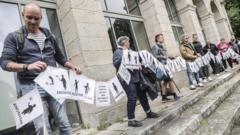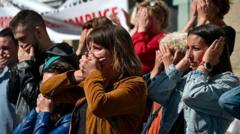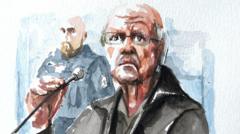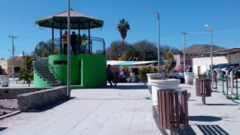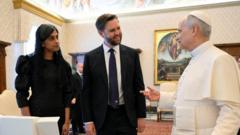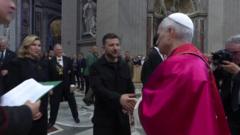Pope Francis emerged as a historic figure in the Catholic Church, advocating for humility, interfaith dialogue, and social justice while grappling with internal traditions and global issues. His unique background, challenges faced during his papacy, and commitment to serving the marginalized defined his leadership.
Pope Francis: The Transformative Legacy of a Non-Traditional Leader
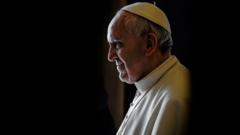
Pope Francis: The Transformative Legacy of a Non-Traditional Leader
Reflecting on the journey of Jorge Mario Bergoglio, who became Pope Francis, and the revolutionary impact he had on the Catholic Church.
Pope Francis, born Jorge Mario Bergoglio in Buenos Aires on December 17, 1936, made history as the first pope from the Americas and the Southern Hemisphere when he took office in 2013. His election also marked him as the first Jesuit pope, a move received with skepticism by traditionalists within the Church. With a background that included working as a nightclub bouncer and a chemical laboratory worker, he ascended to the Church's highest office later in life, at age 76, coming from a region grappling with social inequities.
Francis sought a transformative approach to the papacy, emphasizing simplicity and accessibility instead of grandeur. Rejecting the opulence often associated with the role, he became known for his moral focus on poverty and social justice, famously declaring, "Oh, how I would like a poor Church, and for the poor." His final appearance as pope was a symbol of perseverance, speaking to the public after recovering from serious health issues, including double pneumonia.
His past in Argentina was marked by controversies related to his actions (or inactions) during the military dictatorship when thousands were vanished. Critics accuse him of insufficiently opposing regime atrocities and failing to protect fellow Jesuits working in dangerous conditions, though he has consistently denied these allegations.
Throughout his papacy, he prioritized reconciliation, not only within the Church but with other faiths, organizing key gatherings aimed at fostering peace. Notable diplomatic efforts included brokering conversations between world leaders and addressing political tensions, something unusual for a pope from Europe.
Despite efforts for inclusivity within the Church, Francis's stance on certain doctrines remained traditional. He opposed issues like euthanasia and reiterated the Church's views on marriage and family planning, stating that some teachings were immutable. His leadership style drew scrutiny as he battled allegations of poor handling of clerical sexual abuse cases that plagued the Church, igniting criticism from conservative factions.
During the COVID-19 pandemic, he made waves by endorsing vaccinations as a moral obligation and requested worldwide unity against the virus's spread. One significant act was presiding over the funeral of his predecessor, Pope Benedict XVI, marking a significant moment in papal history.
Francis continued advocating for peace, appealing for conflict resolutions, notably in Ukraine. His pilgrimages across the globe highlighted his commitment to making the Church accessible and relevant to all, especially those most marginalized. With numerous cardinals from non-European backgrounds appointed, he leaves behind a more globalized Church than he inherited.
In a poignant reflection on humility, he remarked about vanity in leadership, "If I had to choose between a wounded Church that goes out onto the streets and a sick, withdrawn Church, I would choose the first.” As he prepares for diagnosis and treatment of health issues, Francis's historical impact on the Catholic Church is undeniable, with many hoping his legacy will prompt future leaders to embrace reforms and social outreach while staying true to foundational beliefs.




